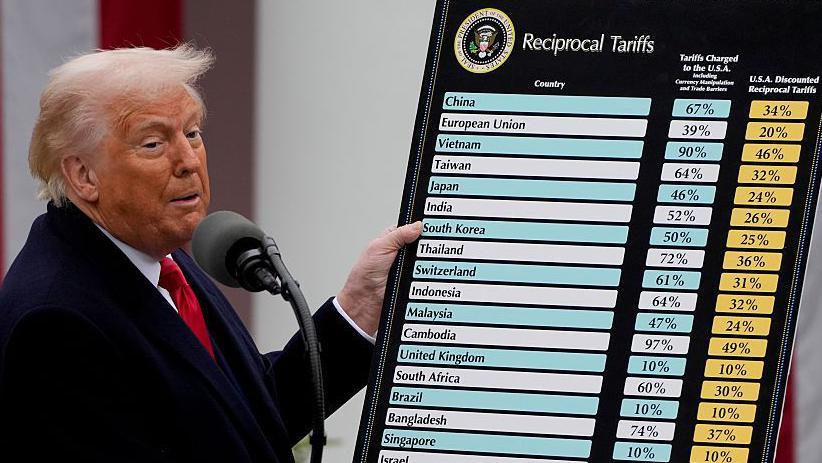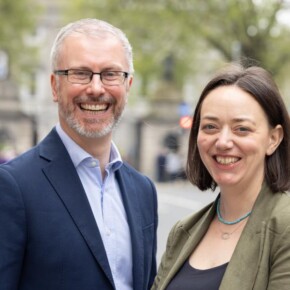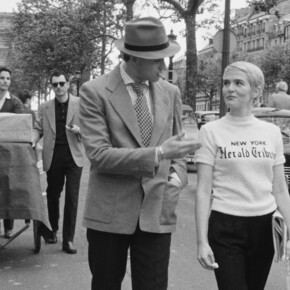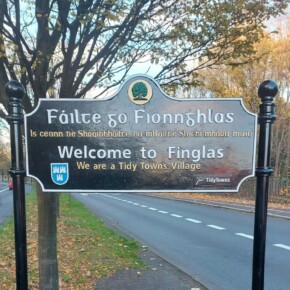Northside Ministers face the music ahead of Trump tariffs
Mike Finnerty 30 Jul 2025
Local government ministers Paschal Donohoe and Jack Chambers were front and centre of the government’s economic spending plans this week.
Dublin Central TD Donohoe and Dublin West TD Chambers, in their roles as Minister for Finance and Minister for Public Expenditure, respectively, will play major roles in how Ireland reacts to the economic uncertainty which is poised to hit Ireland in the coming months.
With the will-they-won’t-they about Donald Trump’s tariffs causing major economic uncertainty, Taoiseach Micheál Martin announced this week that the government would be more focused on infrastructure projects over the government’s term instead of day-to-day spending.
Tuesday’s (22) Summer Economic Plan explored how Ireland will navigate the choppy waters brought about by the second Trump administration, with the Budget itself to be delivered on October 7.
€9.4 billion will be spent in this year’s Budget, with €7.9 billion going towards public spending and €1.5 billion going towards tax cuts.
Donohoe said, “the changing tariff landscape and increased protectionism are a key challenge for Ireland’s economic model.”
“While the economy has remained resilient, the government will be proactive in our response.”
“While continuing to advocate for multilateral cooperation, the summer economic statement provides resources to enhance our economic competitiveness by making large-scale investments in our public infrastructure and continuing to improve public services.”
When the tariffs were first announced on April 1, the EU was going to be hit with a tariff rate of 10%, with a 30% tariff rate threatened should the EU not agree upon the rate by August 1.
In the run-up to the August 1 deadline, it was reported that the EU is looking to settle for a 15% rate, a change from the initial 10% rate, with the deal being formally announced on Sunday, July 27.
The 15% rate being a change from initially agreed upon 10% is likely to cause a headache for the government, but the government has insisted they are drawing up Budget plans with different rates (be they 10%, 15%, or higher) in mind.
The summer economic statement was essentially the government trying to calm consumers and businesses that they are on top of the situation (or at least, the most they can be on top of an economic situation where Donald Trump is involved).
Donohoe was keen to stress that Ireland’s economy is due to have a surplus for both 2025 and 2026, but that surplus is now at risk.
“At a headline level, our public finances are in a strong position, with budgetary surpluses expected this year and next. However, our fiscal strength is underpinned in a large part by volatile corporation tax receipts, which represent a significant vulnerability,” Donohoe said.
“The emerging challenges that we face requires a budgetary strategy that is flexible, responsive and consistent with increasing Ireland’s competitiveness.”
The Minister is of course, no stranger to difficult economic circumstances; he was in charge of the public purse strings when the Covid-19 pandemic arrived on Irish shores in March 2020 and was part of the European-wide response to the financial realities of the pandemic in his job as President of the Eurogroup.
This time last year, it was announced that Jack Chambers would be succeeding Michael McGrath as Minister for Finance following McGrath’s elevation to the role of Ireland’s EU Commissioner in Brussels.
In the post-election milieu, Chambers and Donohoe swapped roles, with Donohoe getting the Finance brief and Chambers getting the Public Expenditure brief.
The Public Expenditure Ministry, if Tuesday’s statement is anything to go by, will become one of the most-talked-about government briefs ahead of the economic headwinds facing Ireland.
Chambers said, “the global trading context we are operating within is shifting and changing. We are navigating this serious economic uncertainty from a position of real strength with 2.8 million people in employment, public finances in surplus and public services expanding to meet our country’s needs.
He noted that current expenditure is to increase by €5.9 billion, while capital expenditure will increase by €2 billion.
“This will result in total available current expenditure of €97.5 billion and capital expenditure of €19.1 billion in 2026. It will be against this backdrop that our budget negotiations will commence with individual departments in the coming weeks,” he stated.
“In my role as Minister for Public Expenditure, my focus is on how our public finances can continue to best support a growing and changing population, enhance our competitiveness and build resilience in our economy. I want to ensure the decisions we make now are appropriate and permanent, can be paid for in the long term and that they deliver value for money.”
In recent weeks (and in the typical drip feed style that has become consistent with Fianna Fáil/Fine Gael governments), it has been strongly implied that cost-of-living measures, which have featured in every Budget since 2022, would not be repeated this year.
Every Budget has an unlikely breakout star (last year was the turn of phone pouches for schools, a measure which was quietly canned after widespread backlash), and this year’s star is cutting the VAT rate from 13.5% to 9% for the hospitality sector.
The tax cut for the sector will cost the Exchequer €1 billion, which has raised some eyebrows.
Coupled with previous implications from the government that cost-of-living measures from previous Budgets will not be repeated, both government and opposition TDs are questioning the purpose of Tuesday’s highly publicised exercise.
Limerick Fianna Fáil TD Niall Collins was quoted in the Irish Times as saying he would not be “comfortable” with the hospitality sector receiving that much of a tax cut, a comment which was instantly picked up on by other Fine Gael TDs and highlighted further tensions in the marriage between the traditional rivals.
The announcement, for all its fanfare, was relatively light on specifics, with members of the opposition likening it to kite-flying.
Local Labour TD Marie Sherlock noted that the plan had no details about what was going to be spent on healthcare, for example.
“This hype of the €100bn has been punctured with little or no detail,” she remarked.
“We have a farcical situation where the government is only now commissioning consultants to look at construction employment, years after we knew we had a problem.”
The much-vaunted tax cut irked Sherlock, who dubbed it a “splurge that is completely at odds with all semblances of protecting our public finances.”
Sherlock, who serves as Labour’s health spokesperson, noted that on paper, health is set to receive more than a 60% increase in capital funding.
Ireland’s obsession with outdated IT systems in the public sector is likely to gobble up improvements in the healthcare system, with electronic health records capable of gobbling up €2bn of the extra €3.55bn allocation, per the Dublin Central TD.
“Questions need to be asked about the government’s commitments in recent times to developing more public nursing homes and community facilities on top of the existing requirements to fund new A&E in Beaumont, the New Maternity Hospital, and additional acute hospital beds.”
“Ultimately, we need to see a clear plan from the government about how we will achieve up to 6,800 inpatient beds, which is the projected need by 2040.”
And what of housing, the proverbial millstone around the government’s neck?
Local Social Democrats TD Rory Hearne said, “no amount of money can solve the housing crisis if the government refuses to change its approach to providing social and affordable homes.”
“While an increase in funding is required to deliver the level of housing Ireland needs, the primary reason we find ourselves in this catastrophe is due to policy,” the Dublin North-West TD said.
“The National Development Plan gives no indication that the government is planning to move away from the measures that have plagued housing provision in the last decade, the failed policies which pander to developers and investment funds,” the Soc Dems housing spokesperson said.
“Housing Minister James Browne has pushed out this government’s housing plan, which was due this month, with no new date for its publication – without details of a change in approach, why would anyone believe this coalition can deliver 300,000 homes by 2030?
Hearne said the government is taking the “locked-out generation for fools.”
“Our young people are reading the writing on the wall and leaving our shores in their droves, and will continue to do so if a radical reset in housing is not instated.
Hearne said the government must “prioritise renters and people who want to own their own home.”
“Without this focus, throwing money at the housing crisis and hoping for a miracle is doomed to fail.”











